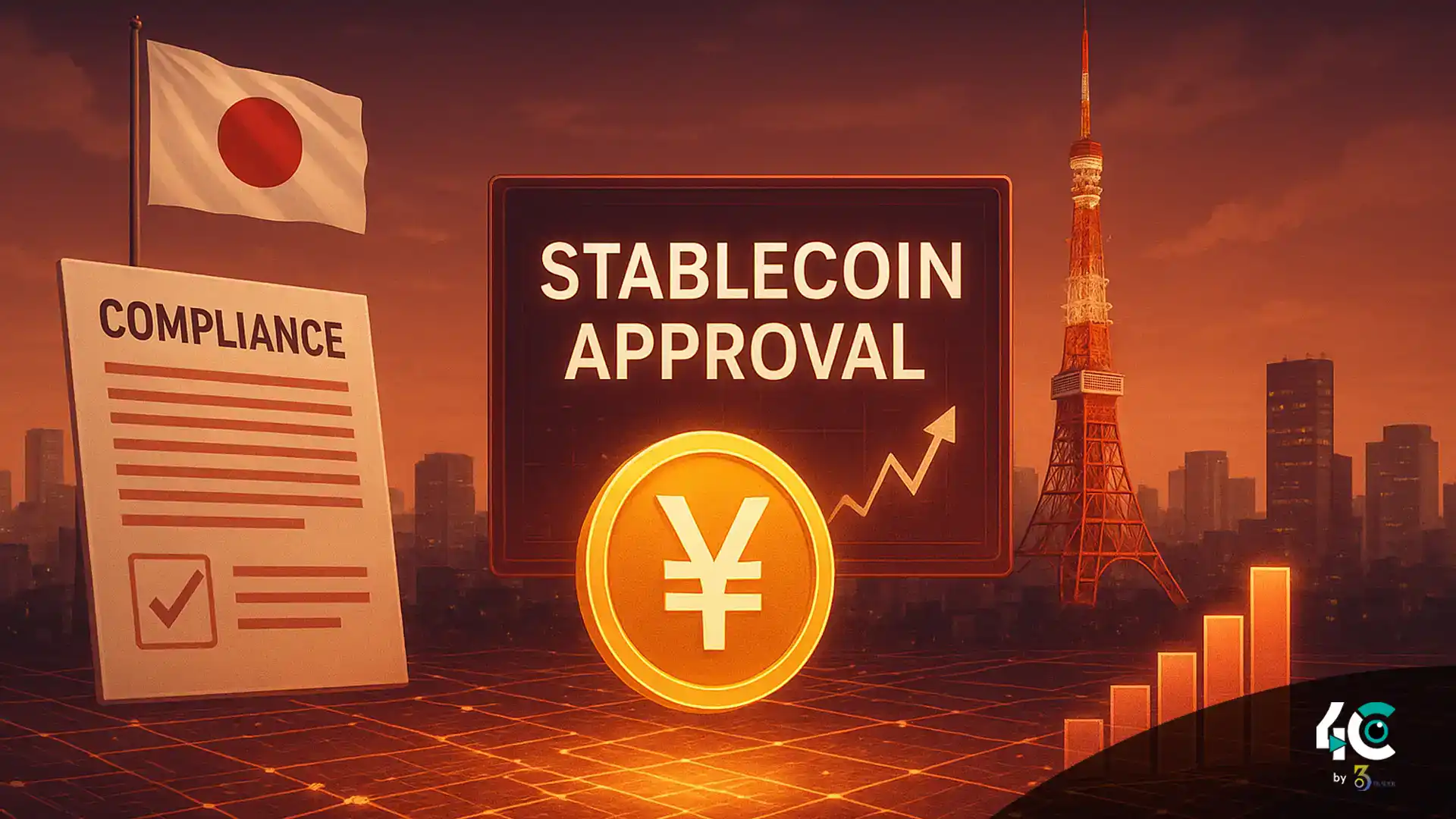Japan Enters the Stablecoin Race
Japan is finally stepping into the stablecoin spotlight. The country’s top financial regulator, the Financial Services Agency (FSA), is reportedly preparing to approve the issuance of a yen-pegged stablecoin later this year. If confirmed, it will be the first time Japan officially backs a domestic digital currency tied to its fiat.
The debut token will be launched by Tokyo-based fintech JPYC, which is set to register as a licensed money transfer business within weeks.
Much like its dollar-backed rivals USDT (Tether) and USDC (USD Coin), JPYC will hold a 1:1 peg with the yen, backed by highly liquid reserves such as bank deposits and Japanese government bonds (JGBs). Purchases will be processed through traditional bank transfers, with tokens then issued directly into digital wallets.
Why This Matters Now
Globally, the stablecoin market has exploded to over $286 billion, but it has been overwhelmingly dominated by US dollar-linked tokens. While Japanese users already have access to foreign stablecoins, this approval marks the first homegrown alternative — a significant milestone for both local businesses and global markets.
Industry watchers believe that a successful rollout could turn stablecoins into a powerful force within Japan’s bond market, one of the largest in the world.
Could Stablecoins Transform Japan’s Bonds?
In a recent post on X (formerly Twitter), a JPYC executive suggested that stablecoin adoption could supercharge demand for Japanese government bonds (JGBs), echoing what’s already happening in the United States.
In America, leading stablecoin issuers like Tether and Circle are among the biggest private buyers of U.S. Treasuries, using them as collateral for tokens in circulation. If JPYC follows a similar path, it could drive substantial new demand for JGBs, altering the dynamics of Japan’s $9 trillion bond market.
The executive also warned that countries slow to embrace stablecoins may face rising government borrowing costs, since they risk losing out on this new wave of institutional capital.
Japan Opens Its Doors to Global Stablecoins
Japan’s pivot toward stablecoins hasn’t gone unnoticed internationally. Earlier this year, Circle, the issuer of USDC, officially launched in Japan after receiving FSA approval. Its tokens are already trading on SBI VC Trade, with plans to expand to top domestic exchanges such as Binance Japan, bitbank, and bitFlyer — platforms with millions of active users.
The Bottom Line
With JPYC’s launch on the horizon, Japan is poised to rewrite its financial playbook. A yen stablecoin could:
- Strengthen Japan’s bond market through new sources of demand.
- Offer businesses and consumers a faster, cheaper alternative to card payments.
- Position Japan as a serious competitor in the global digital currency race.
As governments worldwide race to define stablecoin regulations, Japan’s entry shows it no longer wants to play catch-up — it wants to lead.



























